Facts about Greece
Greece has over 6,000 islands with 15,000 miles of coastline, scattered in the Aegean and the Ionian Seas, and even though a lifetime may not be enough to visit them all, you will be able to make your own itinerary, and visit the ones that you think are the most interesting or those that suit your taste best.

The nursing homes are rare in Greece in contrast to most of the world countries, most older people live with their families until they die.

Greece was the first country that achieved victory over the Axis forces in the Second World war.
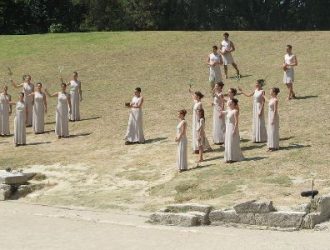
Greece holds the record for Olympic medals in proportion to the population of a country. Greece won a medal for every 52 900 people.
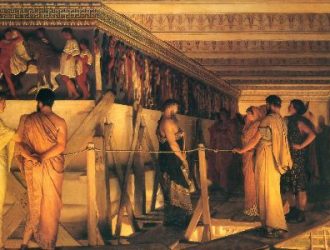
When Solon gave the Athenian citizens the right to vote, he established the modern democracy.
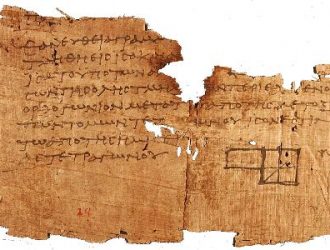
One of the first Cookbook was written by a Greek chef Arhestratus in the 5th century BC and called it “Gastronomy” – here’s where it comes from this word!
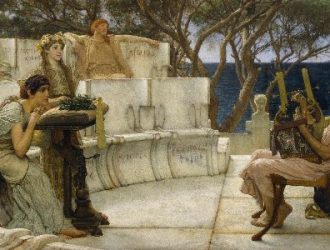
The ancient Greek thinkers such as Socrates, Aristotle and Plato opened the way for modern Western thought by focusing on evidence and logic.
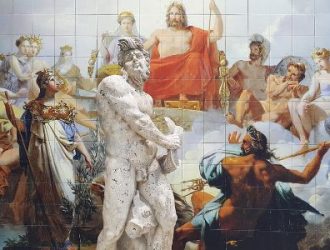
The Greek myths continue to influence discussions and our art. It is also evident the similarity of today’s superheroes and Greek mythical hero.
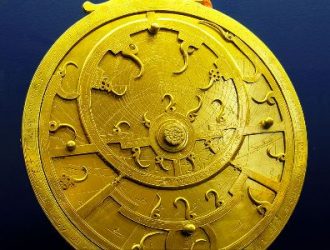
Long before NASA, the ancient Greeks had made important discoveries about the Earth. Anaxagoras had understood the cause of the eclipse and Aristarchus was the first to propose the fixed position of the sun.
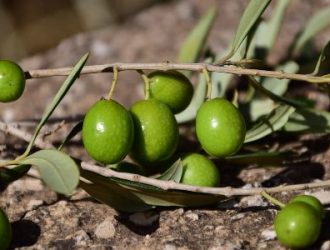
Greece is the third country in the world olive production. The olive cultivation began in our places of antiquity.

Greek merchant fleet reaches 70% of all European ships. It is the largest in the world as well.

Greek doctor, Georgios Papanikolaou, invented the Papanicolaou stain, thus saving millions of women around the world. He wasn’t awarded by a Nobel Prize committee that year.
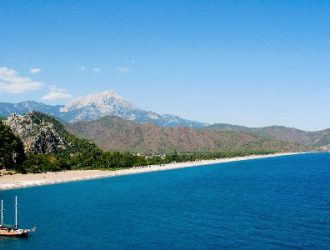
80% of the country’s territory is mountainous. The country has neither a navigable river, because of this particular geomorphology.

Gyros is a traditional Greek dish of meat roasted on a vertical spit. It usually serves as a sandwich, with tomato, onions, tzatziki salad or sour cream, wrapped in special bread and pie.
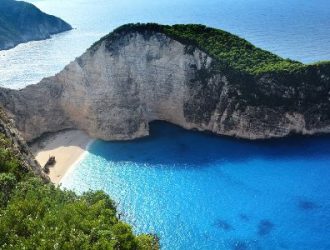
The country’s coastline is the tenth longest in the world.
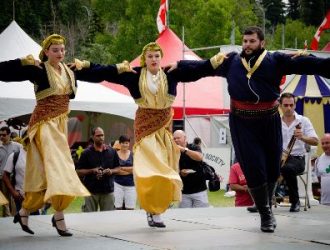
Greece has 63 folk dances. Greeks love to play and dance.
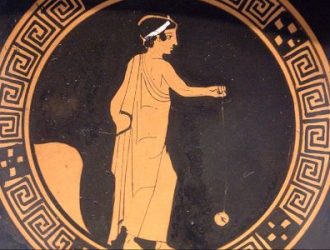
Yo-Yo’s second oldest toy in the world. It was 3000 years ago in ancient Greece.

It is also the first country in the world to trade… sponges.
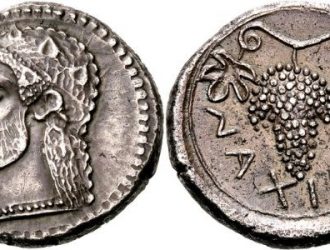
Greek currency, the drachma, as of the year 2002, was used for 2650 years. It is also the oldest currency in Europe. In 2002, drachma was replaced by the euro.
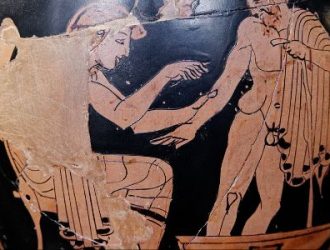
Hippocrates, the father of Western medicine was among the first people who studied the human body and the medical profession was under its influence.
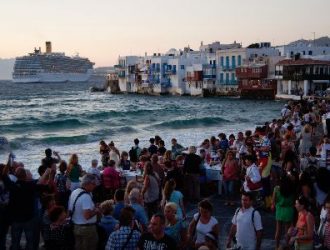
On average, more than 20 million tourists arrive each year in Greece. This means that visitors outnumber the local population of about 10 million.

Santa Claus is a word of Greek origin. St. Nicholas was a rich Greek who gave his money to the poor.

Approximately 100,000 birds from northern Europe and Asia, wintering in our area.
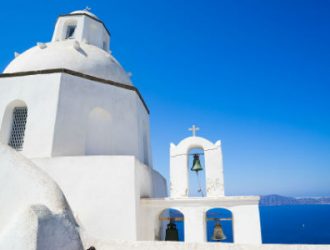
The main religious holidays in Greece are Easter and the Assumption of the Blessed Virgin Mary. Many Greeks for these holidays go back to their native places to celebrate it with roast lamb and good wine.
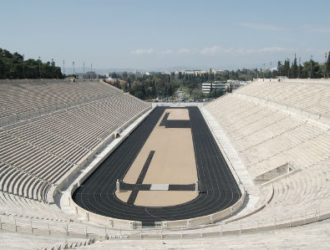
The first Olympic Games were held in 776 B.C. The Greek tradition of athletic nudity (gymnos) was introduced in 720 BC by the Spartans and this was adopted early in the Olympics as well.
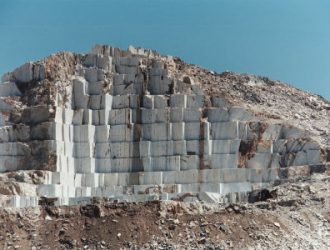
Approximately 7% of all the marble produced in the world comes from Greece. The domestic law requires 75% of the ships’ crew have Greek nationality.
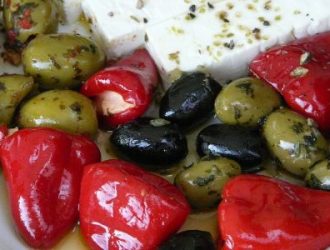
Feta is a brined curd white cheese made from sheep’s milk or from a mixture of sheep and goat’s milk. Feta is used as a table cheese, as well as in salads (e.g. the Greek salad) and pastries. The average consumption of cheese per capita is the highest in the world.
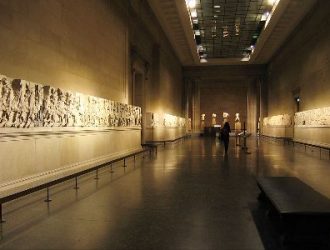
Greece has more museums than any other country in the world.
- Zeus was the supreme god in Greek mythology, the leader of gods and men, as well as the god of the sky and thunder, who lives on Mount Olympus.
- The ancient Greek thinkers such as Socrates, Aristotle and Plato opened the way for modern Western thought by focusing on evidence and logic. The English word «philosophy» means love of wisdom comes from the Greek language.
- The Greeks sacrificed hundreds of bulls to Zeus during each Olympics.
- The slaves in ancient Greece accounted for 40-80% of the population in cities-states. They were mainly prisoners of war, abandoned children or children of slaves.
- Anthem of Greece contains 158 verses. None of the citizens are able to remember all the verses.
- Herodotus, the father of history, was the first who wrote about the Greco-Persian wars. Before that, there were no written references to past events. He is considered as the founder of the historical analysis and continues today to inspire modern scholars.
- The island of Rhodes was populated in Stone Age.
- The Greek Orthodox Church forbids cremation of the body.
- Greece has one of the lowest divorce rates in Europe.
- Anthem of Greece contains 158 verses. None of the citizens are able to remember all the verses.
- Life expectancy in ancient Greece reached the 36 years for women and 45 years for men. Of the children who were born, only half were able to live and after the stage of infancy. Today, life expectancy has reached 77 and 82 years for Greek men and women, respectively, which places us in the top 26 countries with the highest life expectancy in the world.
- In the 1950s, only 30% of Greeks knew writing and reading. Today, the level of literacy barely reaches 5%.
- Twelve million people worldwide speak Greek. These, of course, include the ten millions of Greek residents and Greek-speaking Cyprus, Italy, Albania, Turkey, the US and other countries who preferred older Greeks to emigrate. The Greek language has been spoken for almost 3000 years, which makes it one of the oldest languages in the world. The Greek language is older than the Chinese and is considered the oldest written language, which is still used today. English, Italian, and Spanish are directly or indirectly connected with the Greek language.
- In Greece, residents celebrate 'name day', or the name of the saint whose name they carry, rather than their birthday.
- Greek colonization reached as far as Russia and France to the west and Turkey to the east.
- The Greeks revolutionized the art of sculpture. Instead of stiff poses and blank faces, Greek artists began to carve statues of people that showed both movement and emotion
- Greek’s highest elevation is the legendary home of Zeus and other Olympian gods and goddesses, Mount Olympus at 9,750 feet (2,917 meters). Its lowest elevation is the Mediterranean Sea, or sea level.
- Alexander the Great was the first Greek ruler to put his own face on Greek coins.
- When the Roman Empire split in two in A.D. 285, the eastern half, including Greece, became known as the Byzantine Empire.
These and many more interesting facts about Greece follow and learn our small curiosities secrets of our country.




